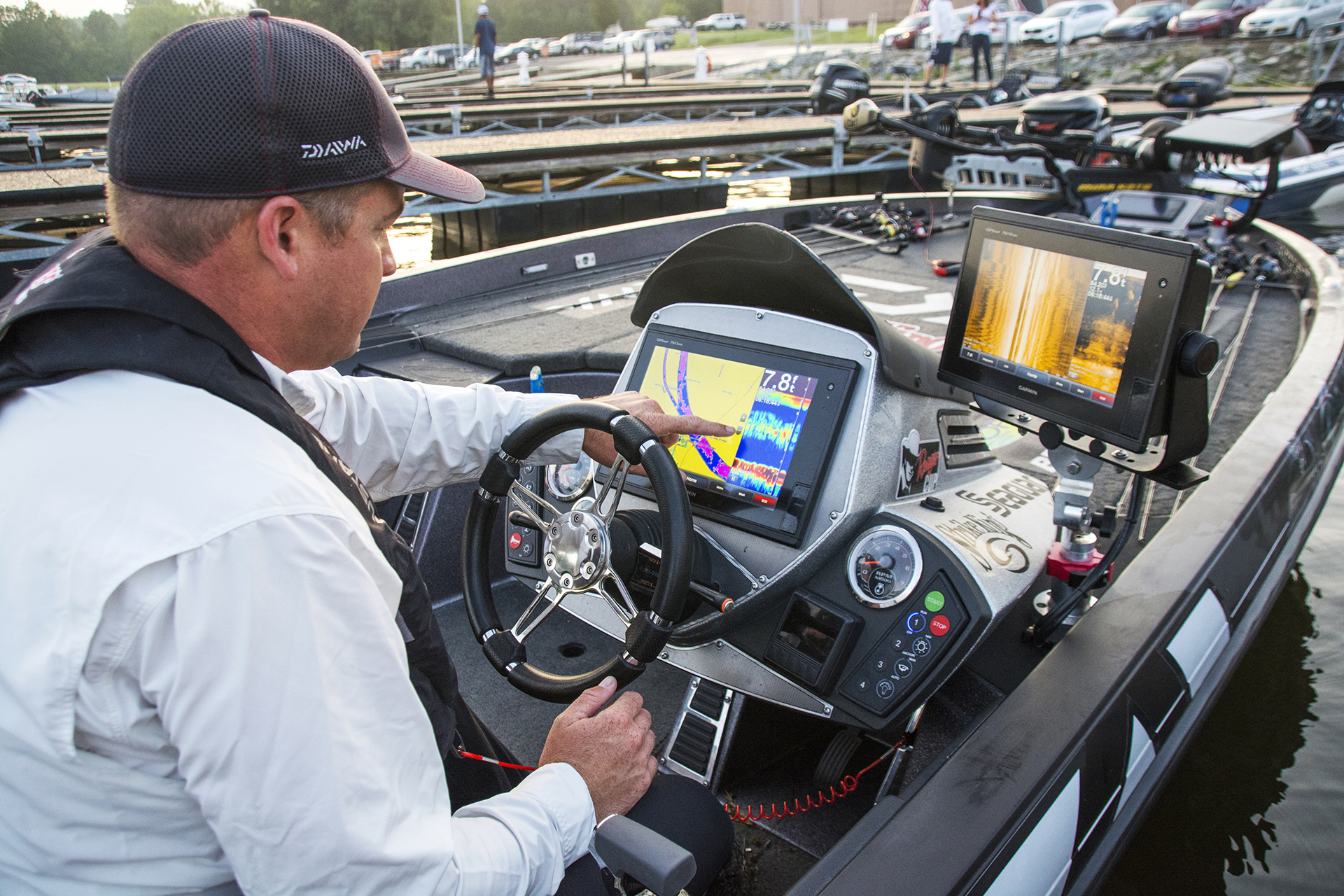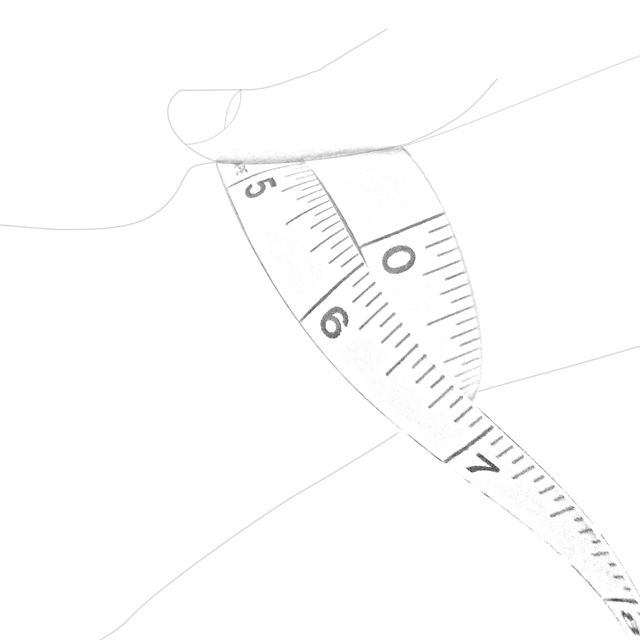Cody Meyer makes the most of Panoptix for NorCal trophy spotted bass
If you follow the social media channels of California-based Garmin pro Cody Meyer, you’re probably aware that December is as much about giant spotted bass as it is about Christmas carols. Meyer – a consistent Angler of the Year threat on the FLW Tour – routinely treats social media followers to a parade of oversized spots in the winter, from a variety of fisheries in Northern California.
A 5-pounder from Lake Shasta. A 7-pounder from Bullards Bar Reservoir. Two 4-pounders from Whiskeytown Lake. And on and on.
For sheer numbers of trophy-sized spotted bass, Meyer’s Golden State fisheries are hard to beat. But catching those fish in gin-clear, deep, cold water is a challenge. We sat down recently with Meyer to discuss the finer points of spot-hunting in the winter. Here’s what he had to say:
Garmin: What is it about your NorCal fisheries this time of year? Are they all just loaded with big spots?
Meyer: We do have some great, deep reservoirs with a lot of spotted bass, but this time of year they’re just especially active. They’re typically gathered up around bait, and if you know how to find them, this is a great time of year to catch some big ones.
 Garmin: So then is it safe to assume that finding bait is your first priority in the winter?
Garmin: So then is it safe to assume that finding bait is your first priority in the winter?
Meyer: Absolutely. This time of year, I’m glued to my electronics. As soon as I start idling out of the marina, I’m staring at my GPSMAP 7612xsv looking for bait– it’s scattered all over most of these lakes right now, so it’s not hard to find. Once I see bait in, say, 40 feet of water, I know that fish will most likely be at that depth, so I’ll run around and find structure that tops out in the 40-foot range.
That gives me a starting point. Fish will also suspend around thermoclines. They’ll get at the very end of a creek on these deep, clear lakes and suspend on temperature breaks there. You’ll see fish literally from the bank down to about 50 feet.
Garmin: And how do you decipher what you’re seeing on your electronics? What are your keys?
Meyer: Because of the way they chase bait, you’ll frequently see a whole bunch of fish stacked in a ¼ to ½-mile section because that’s where the bait is … but you’ll also see everyone fishing right on top of each other in those areas. Guys will be all ganged up, throwing at the bank or dragging a worm on a point. But these big Northern California spots rarely go to the bottom: they live offshore where they can eat trout or kokanee.
The problem you have is that you can’t really cast a bait out into the middle of nothing, right? Panoptix is a HUGE advantage here. I can pull up to a point where everyone is dragging a worm, scroll around with my Panoptix, and see fish that you just wouldn’t know were there otherwise. I’ll fire a swimbait out there and watch fish come to the bait. Sometimes they come up and turn away, sometimes they follow the bait but don’t bite, but the bottom line is that you can see things with Panoptix that can clue you in better on what fish might want.
Garmin: Expand on that a little. What do you mean by being “clued in” that way by your Panoptix?
Meyer: For example, say you’ve seeing fish down 10 to 20 fish. You throw a crankbait out there and fish start shooting up to it, but they only get so close to it before they turn away. They don’t want to come up that high. So what’s your adjustment? Well for one, you might try a deeper-diving crankbait. Or, maybe you’ll see fish race up to your bait and track it, but they won’t eat it. So you have to think about your color, or maybe your retrieve. Maybe they want a more natural color, or maybe they’ll respond better if you change the retrieve: Stop. Go. Stop. Go.
A jerkbait is a great example, too. You’ll frequently see fish come to a jerkbait pretty fast, but then they’ll just chase it a little and then lose interest. That means they probably want a different cadence: they want ‘jerk … pause, jerk, jerk … pause’. It’ll break your heart sometime because you’ll sometimes see hundreds of fish, and maybe two or three will want to eat your bait. But the thing with Panoptix is that you can see it unfold right in front of your eyes, and you can learn and adjust to the conditions as you go.
Garmin: What are your two go-to presentations for spotted bass in the winter?
Meyer: I fish a drop-shot a lot: a ¼-ounce drop-shot weight and Strike King KVD Dream Shot in a natural-shad color. I like to cast it and let it pendulum-swing – it’s an easy, natural presentation that’s good for suspended, inactive fish. If I’m fishing on the bottom, I’ll go with a football-head jig with a Rage Craw or Strike King KVD Finesse Worm trailer.
Follow Garmin Fish & Hunt on social media for videos, tips from pros and articles to help you become a better angler.
The post Cody Meyer makes the most of Panoptix for NorCal trophy spotted bass appeared first on Garmin Blog.
Sample Block Quote
Praesent vestibulum congue tellus at fringilla. Curabitur vitae semper sem, eu convallis est. Cras felis nunc commodo loremous convallis vitae interdum non nisl. Maecenas ac est sit amet augue pharetra convallis nec danos.
Sample Paragraph Text
Praesent vestibulum congue tellus at fringilla. Curabitur vitae semper sem, eu convallis est. Cras felis nunc commodo eu convallis vitae interdum non nisl. Maecenas ac est sit amet augue pharetra convallis nec danos dui.
Cras suscipit quam et turpis eleifend vitae malesuada magna congue. Damus id ullamcorper neque. Sed vitae mi a mi pretium aliquet ac sed elitos. Pellentesque nulla eros accumsan quis justo at tincidunt lobortis denimes loremous. Suspendisse vestibulum lectus in lectus volutpat, ut dapibus purus pulvinar. Vestibulum sit amet auctor ipsum.

